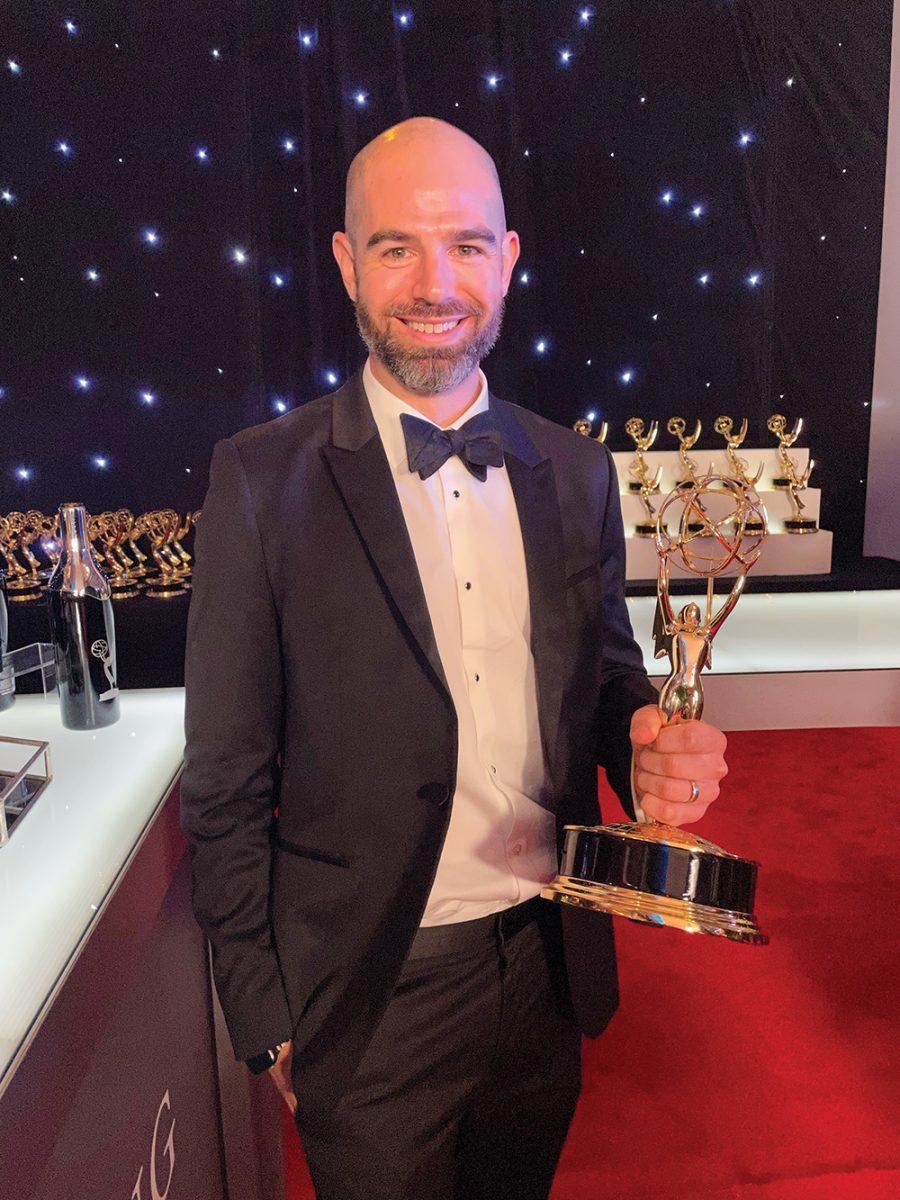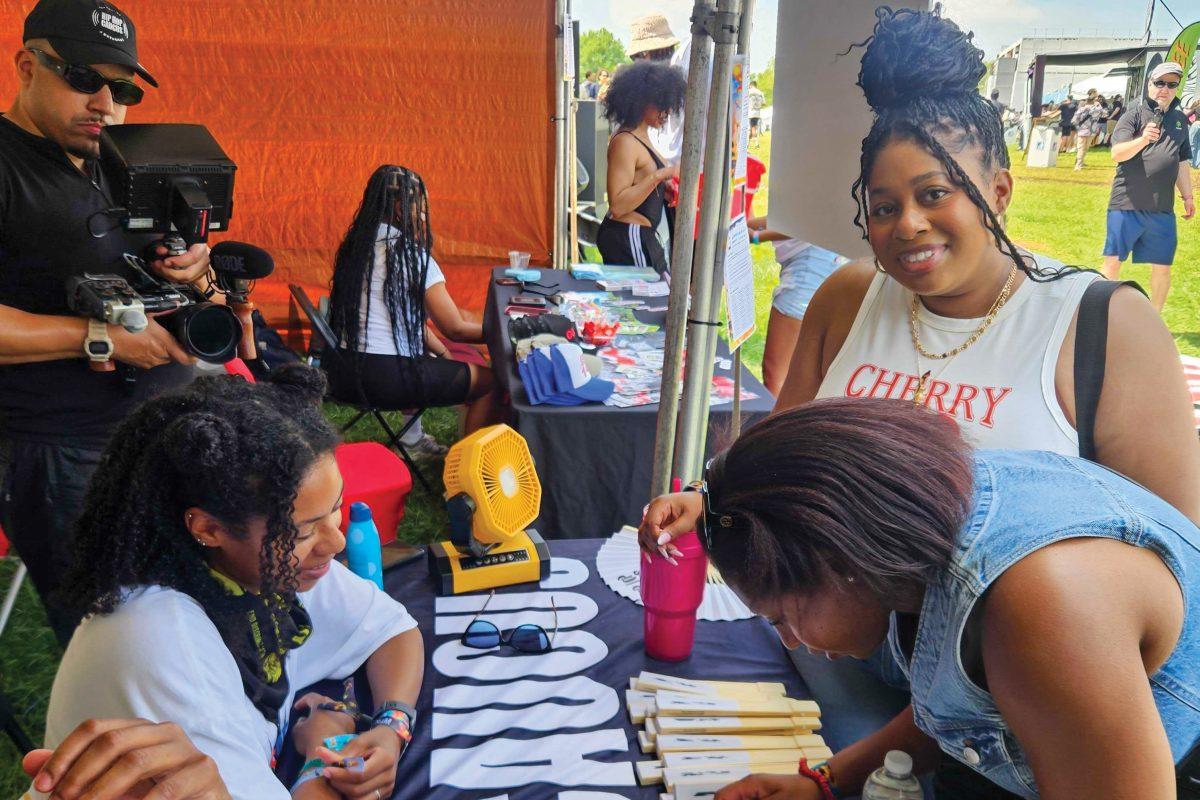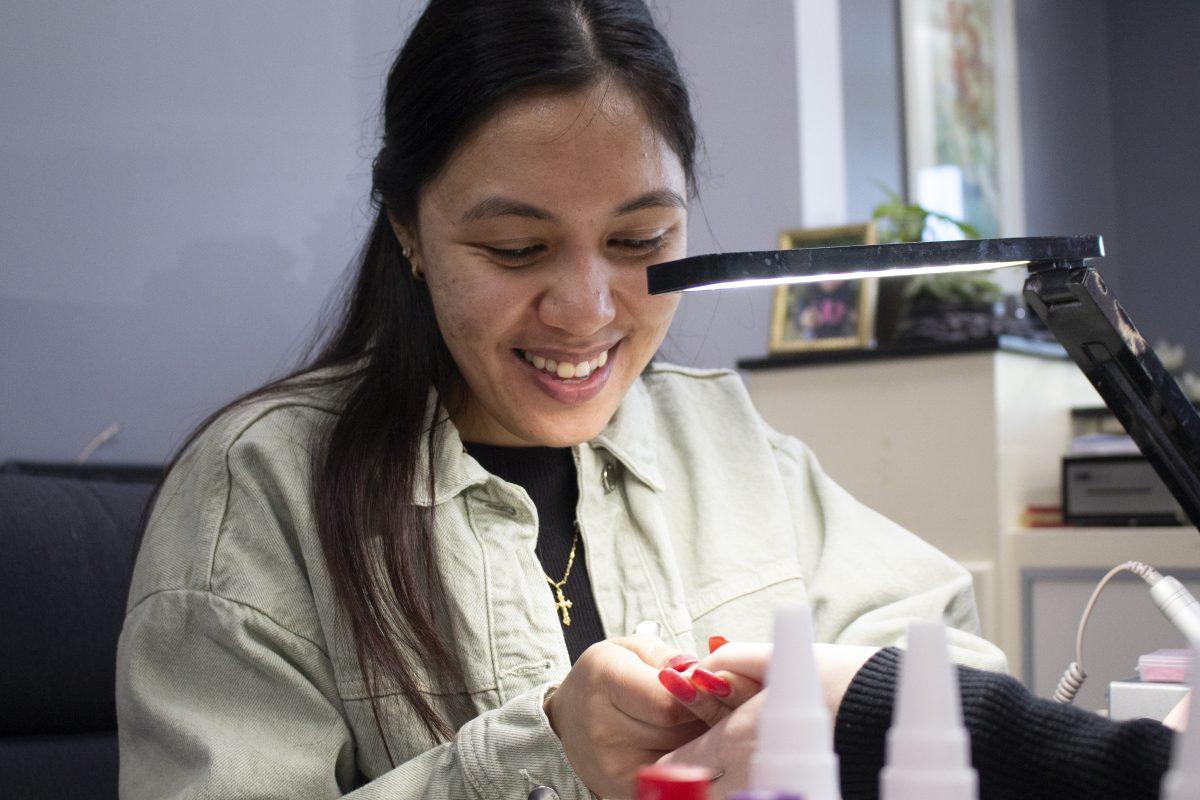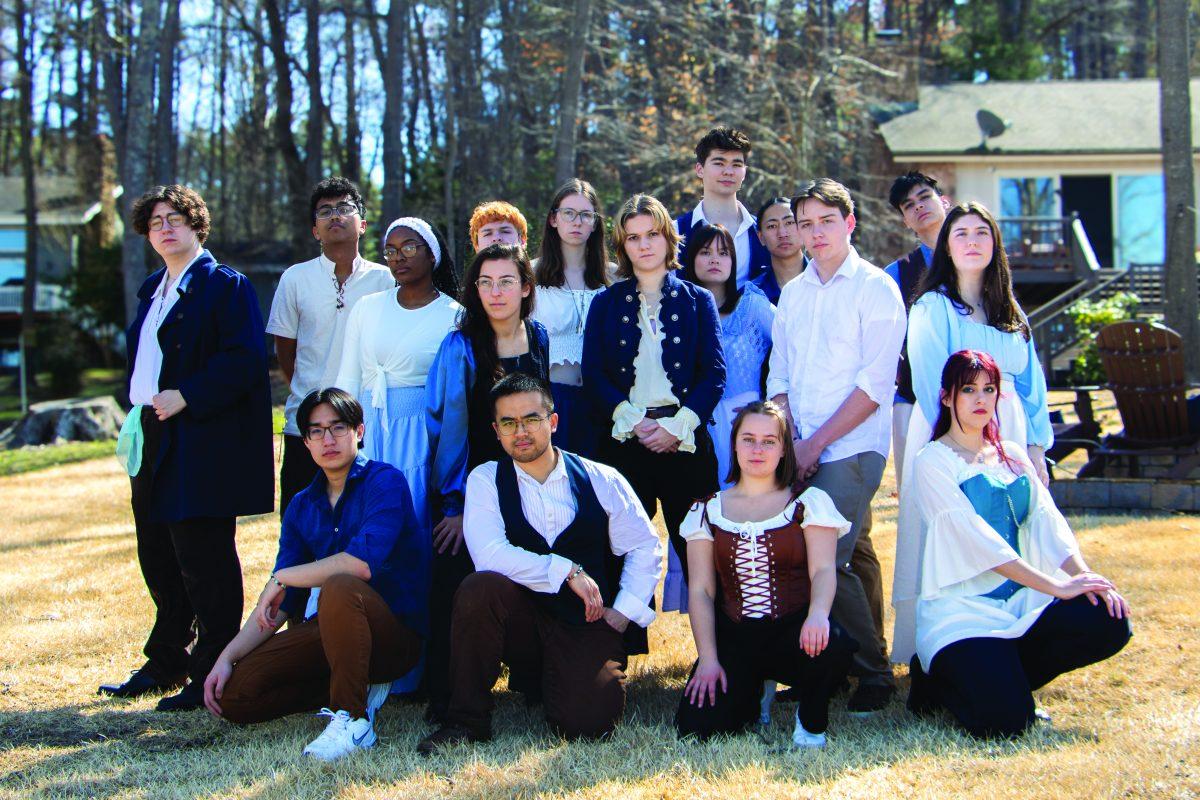Flying to Los Angeles with a buddy and a biology degree to find work in television and film may seem like a hastily made decision, but sometimes the biggest risks reap the biggest rewards. NC State alum Kip Kroeger did just that after graduating, starting out as a production assistant before moving up the totem pole and eventually landing the gig as supervising producer for “Ted Lasso.”
Kroeger, who graduated from NC State in December 2004 with a B.S. in biology, moved to Los Angeles a mere two months later to work as a production assistant (P.A.) on set. Shortly into his tenure as a P.A., he got the opportunity to sit down with talented producer and screenwriter Bill Lawrence.
“[Lawrence said] ‘I got a P.A. job on a pilot coming up if you want it,’” Kroeger said. “And so I jumped across the table to take the job, and I was a set P.A. on a pilot that didn’t go anywhere. I had a blast.”
Like any college graduate, Kroeger tried out several different work environments upon entering the rat race. However, his second job wasn’t nearly as fulfilling and rewarding as his stint as a production assistant on Lawrence’s show, and he itched to return to the television industry.
“Six months into that, I was really sitting there trying to figure out what am I going to do,” Kroeger said. “I don’t know enough about the industry, but I know that this is not what I wanted to do. And it was right around that time I got a call from ‘Scrubs,’ and they said ‘Hey, we’ve got a post-P.A. job for you.’”
From there, the rest is history; Kroeger quit his other job immediately and began working on shows like “Scrubs,” “Falling Skies” and “Undateable.” He worked his way up the totem pole, working as a post-production assistant and coordinator before becoming the supervising producer of “Ted Lasso” under Bill Lawrence.
“I’m still responsible for all post-production, but it sort of keeps spilling out and encompassing a bit more as time goes on and working with that more and all that kind of stuff,” Kroeger said.
Kroeger specifically works through the editing process, fine-tuning visual effects, sound mixing and color correction, among other things. There are occasionally slip-ups and sticky situations — for example, Kroeger’s team had to green-screen an entire football pitch into season one — but the final product is more than worth it.
Before the COVID-19 pandemic hit, Kroeger got the opportunity to fly out to London to help the director get the set up and running. He cites that first trip to London as some of his best memories from working on “Ted Lasso.”
“It was so fun to be there in the thick of it, because so much of what I do ends up being back here in L.A.,” Kroeger said. “We don’t get a ton of proximity to [the cast].”
Although his current job is quite different from what he’d imagined it to be during his time at NC State, Kroeger looks back on his college years — especially the football games — fondly.
“Some of the most fun memories I have are watching NC State football,” Kroeger said. “I was there during Phillip Rivers’ years — he was my class, he started my freshman fall as a true freshman. … Watching those games was really something.”
And, like many other undergraduates, Kroeger reconsidered his major several times. He put a lot of faith into film and television, despite how unstable the media industry can be.
“I really wanted to interact with people more, and so I was trying to figure out how to do that,” Kroeger said. “I reached out to a buddy, the guy I ended up moving out to L.A. with, and asked if he ever knew of a way to use tech and entertainment, because that sounded like a lot of fun to me.”
From there, he switched from computer science to biology as a fall-back plan and took the 3,000-mile leap shortly after graduation. Obviously, not every aspiring producer is as lucky, but Kroeger acknowledged that and emphasized the importance of churning out content for those passionate about film and television.
“If you are a writer, write as much as you can,” Kroeger said. “If you want to be a director, find ways to shoot things. If you want to produce, find people to collaborate with and start to make your own content and read the trades, read Deadline, [The] Hollywood [Reporter] and Variety. Learn who the different jobs are, learn who the different people are and don’t be afraid to start at the bottom.”














